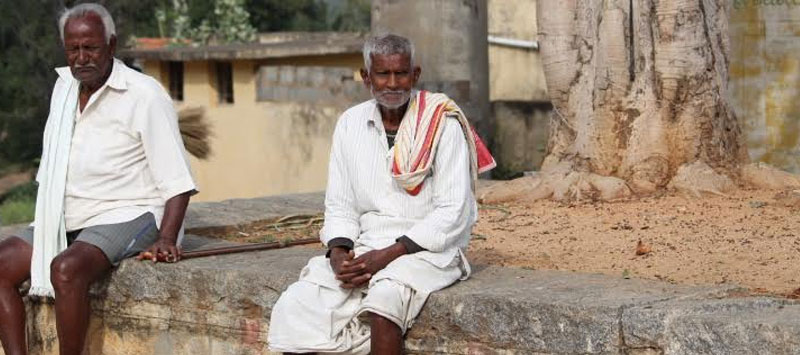
Journalism students find the warmth in the rural part of Karnataka-Malur
Amala Justy
II MA JMC
Taking a drive through the rural realms of Karnataka, the place named Malur, one can see people carefully picking out weeds off their fields, the scare crows guarding the fields through the day, there are cloths drying over hay sacks, alone with their land and grateful for their produce. There are brick factories, surrounded by many tiny red bricked huts, vast lands left abandoned as lakes dried up to ponds. Bumpy roads, where cycles alienate the cars. Animals like hens, sheep and cattle form the oddest of herds and live in peace with the occasional cock fights.
The visit to a place like Kesaregere gives a break from the monotonous noise of the city. The people choose to earn their living by means of agriculture and other jobs, contrary to popular belief they enjoy a decent living standard. With almost every household having a two or four wheeler, parked next to their tractors or autos, a shiny big TV to connect them with unreachable parts of the world, and animals to add to the produce.
What stands out is the bond between the people of the village. Their children are sent to the common school where the principal ensures that they clean their school and wash up after their meal. A number of 100 students are managed by 3-4 teachers who enthusiastically take care of the academics as well as the meals of the children. It’s magical to experience their joy when they share their meal with 20 strangers who visited them from Kristu Jayanti College. Making their one day a little better than the others, changes one’s perspective on the little things in life. Showering them with gifts, appreciating their uniqueness, adding flavour to their life in the smallest ways possible, all allows one to connect with the human within themselves which is often lost amidst the chaos of the city.
Although one is immersed in the beauty of the simple life of village folks, it is only when they leave the city that they understand the depth of differences. The journey back to reality and rush hours, allows in appreciating the calmness and stillness of time in rural parts where people depend on each other and design their life around others and the mother earth. Building this respect towards the so called “backward” takes effort and receptiveness.